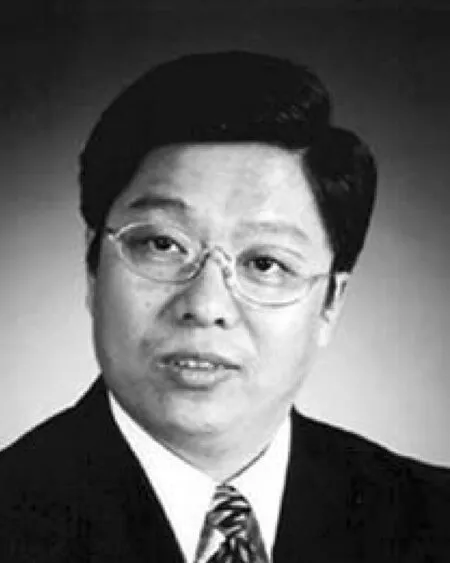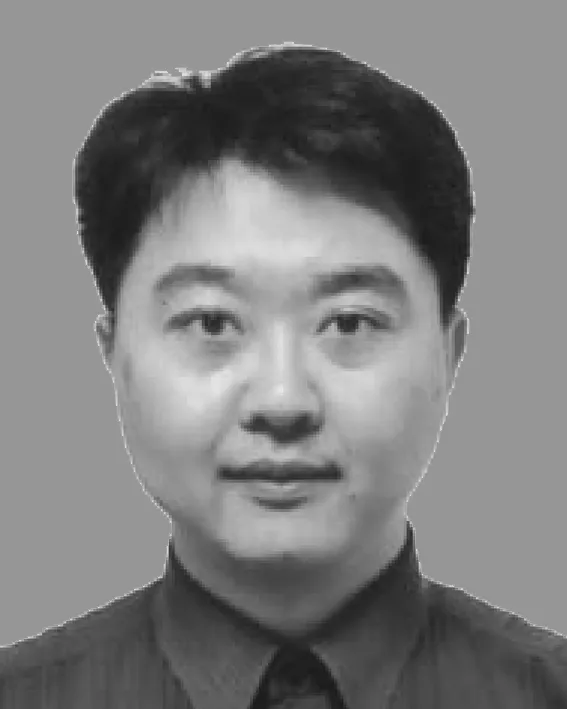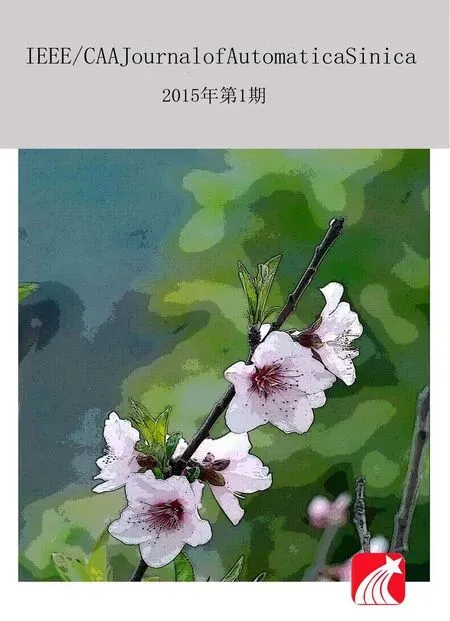Guest Editorial for Special Issue on Autonomous Control of Unmanned Aerial Vehicles
Derong Liu,Changyin Sun,and Bin Xian
Guest Editorial for Special Issue on Autonomous Control of Unmanned Aerial Vehicles
Derong Liu,Changyin Sun,and Bin Xian
I N recentyears,unmanned aerialvehicles(UAVs)have been widely employed in different applications,both military and civilian.Especially,a fast growing civil UAV market is predicted over the next decades.However,most currently developed UAVs depend on simple control strategy.They require exact modeling of the UAVs'dynamics and are vulnerable to externaldisturbance.Therefore,there is great need for advanced control strategies that are robust to modeling uncertainties and disturbances.This special issue focuses primarily on the problem of control design for UAVs with high robustness.
In this special issue,fourteen papers have been selected to representcurrenttrends and advances in the advanced control of UAVs.The paper by Xia et al.describes the development of attitude control algorithm for multiple UAVs with modeling uncertainties and disturbances.Duan et al.discuss an optimization approach for multiple unmanned combat aerial vehicles based on particle swam method.Xian et al.explore an adaptive flight control design for a 6 degree-of-freedom unmanned helicopter under uncertain dynamics.The paper from Zhou et al.presents a robust tracking methodology for multiple UAVs.Zheng etal.provide a robuststate estimation approach for a quadrotor UAV with monocular camera and inertial measurement unit as the main onboard sensors.Mu et al.describe a nonlinear robust controller for an unmanned hypersonic vehicle by using continuous sliding mode method and disturbance observer.The paper by Peng et al.provides a robustadaptive controlalgorithm fora coaxialeightrotor UAV by combing sliding mode approach with radial basis function neural network.Wang et al.utilize disturbance observer to explore a robust tracking control for a vertical take-off and landing UAV which is subjected to external disturbances. Zha et al.construct a dynamic multi-team antagonistic games model for multiple UAVs with incomplete information.By using the operative scenario approach,Fang et al.present a probabilistic robust linear parameter-varying control methodology for a small unmanned helicopter.The paper by Zhang et al.provides an adaptive robust attitude control design for an unmanned hypersonic vehicle based on the backstepping approach.The paper by Liu etal.explores an attitude control design for UAV which can achieve finite time convergence. Miao et al.utilize onboard monocular video sensor to setup an autonomous control strategy in GPS-denied area.Liang et al.explore an decoupling trajectory tracking control design for an unmanned re-entry vehicle with high nonlinearity and strong coupling between the vehicle's states.
Together,these fourteen papers provide the state-of-the-art theoreticalanalysis and controldesign for UAVs,and highlight the research currently ongoing in this area.We would like to thank the authors,reviewers,and the editor-in-chief for their support to this special issue.We hope that you enjoy reading this issue and the papers!


Changyin Sun received the B.Sc.degree in mathematics from Sichuan University,the M.S.and Ph.D. degrees in electrical engineering from Southeast University,in 1996,2001,and 2004,respectively. He worked as a postdoctor at Chinese University of Hong Kong in 2004.He joined Hohai University in 2006 as a professor.He has been with Southeast University of China since 2007,where he is currently a Full Professor.Also he is a distinguished professor of University of Science and Technology Beijing now.He received the Outstanding Young Scholar Award from the National Natural Science Foundation of China in 2011.He is the associate editor of the IEEE Transactionson Neural Networks and Learning Systems,International Journal ofSwarmIntelligenceResearch,etal.His research interests include intelligent control,flight control,optimization algorithms,and pattern recognition.

Bin Xian got his B.S.degree in mechanical engineering from Tsinghua University in 1997,his M.S. degree in electrical engineering from the Institute of Electrical Engineering,Chinese Academy of Science in 2000,and his Ph.D.degree in electrical engineering from Clemson University in 2004.From 2004 to 2005,he was a postdoctoralresearch fellow in the Department of Mechanical Engineering and Material Science,Duke University.From 2005 to 2007,he was a senior motion controlscientistin the Controlled Semiconductor Inc.in Orland,Florida, USA.Dr.Xian has been a professor with the School of Electrical Engineering and Automation at Tianjin University since 2007. His current research interests include nonlinear control system,unmanned aerial vehicles,mechatronic system,and intelligent robotic system.
u
the Ph.D.degree in electrical engineering from the University of Notre Dame in 1994.He was a Staff Fellow with General Motors Research and Development Center,from 1993 to 1995.He was an Assistant Professor with the Department of Electrical and Computer Engineering, Stevens Institute of Technology,from 1995 to 1999. He joined the University of Illinois at Chicago in 1999,and became a Full Professor of Electrical and Computer Engineering and of Computer Science in 2006.He was selected forthe“100 Talents Program”by the Chinese Academy of Sciences in 2008.He has published 15 books(six research monographs and nine edited volumes). Currently,he is a Distinguished Lecturer of the IEEE Computational Intelligence Society and he is the Editor-in-Chief of the IEEE Transactions on Neural Networks and Learning Systems.He was the General Chair of 2014 IEEE World Congress on ComputationalIntelligence and is the GeneralChair of 2016 World Congress on Intelligent Control and Automation.He received the Faculty Early Career Development Award from the National Science Foundation in 1999,the University Scholar Award from University of Illinois from 2006 to 2009,and the Overseas Outstanding Young Scholar Award from the National Natural Science Foundation of China in 2008.He is a Fellow of the IEEE and a Fellow of the International Neural Network Society.
:Derong Liu,Changyin Sun,Bin Xian.Guest editorial for special issue on autonomous controlof unmanned aerialvehicles.IEEE/CAA Journal of Automatica Sinica,2015,2(1):1
 IEEE/CAA Journal of Automatica Sinica2015年1期
IEEE/CAA Journal of Automatica Sinica2015年1期
- IEEE/CAA Journal of Automatica Sinica的其它文章
- Autonomous Landing of Small Unmanned Aerial Rotorcraft Based on Monocular Vision in GPS-denied Area
- Continuous Sliding Mode Controller with Disturbance Observer for Hypersonic Vehicles
- Adaptive Backstepping Tracking Control of a 6-DOF Unmanned Helicopter
- A Predator-prey Particle Swarm Optimization Approach to Multiple UCAV Air Combat Modeled by Dynamic Game Theory
- Finite-time Attitude Control:A Finite-time Passivity Approach
- Decoupling Trajectory Tracking for Gliding Reentry Vehicles
